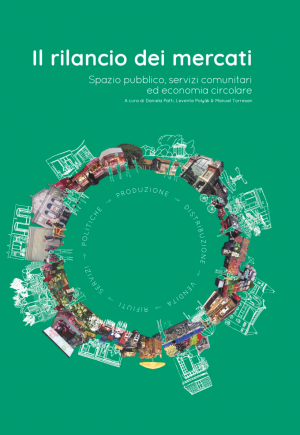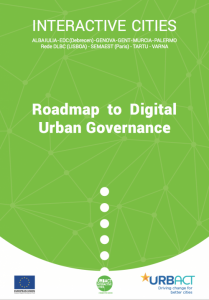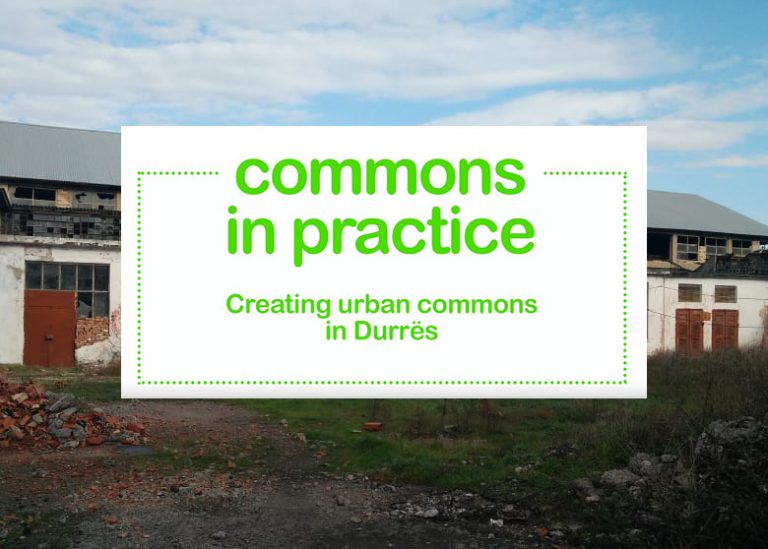Subscribe to our joint NEWSLETTER for
EUTROPIAN &
COOPERATIVE CITY MAGAZINE


Through our projects and consultancies, we’ve come into contact with (and established meaningful friendships with) institutions and communities that spearhead local economic development and social innovation. Our work has provided us with access to a wealth of information, which we’ve compiled and written extensively about. Our publications span across a variety of themes, ranging from participation, fundraising and policy development to community and finance, digital urban governance, urban regeneration, cultural development, circular community economy and social and ecological sustainability.
What is just transition? Why are cities specially equipped to shape just transition proceses?
Public discussion increasingly refers to “just transition” as the process of decarbonising industry while simultaneously promoting social inclusion to ensure no one is left behind. The social dimension is a fundamental aspect to just transition, especially because there are already many marginalised individuals and groups under current conditions. The debate on just transition has become an integral part of Europe’s overall objective of becoming the first climate-neutral continent by 2050. This report commissioned by C40 and co-authored by Eutropian provides an overview of key concepts, themes, opportunities and challenges in relation to just transition in Europe, and highlights the opportunities that cities can leverage and strategies that may be effective in shaping a stronger collective voice in pursuit of just transition in Europe.

Heritage is a crucial component of our individual and collective identities, communities and social infrastructure as well as our urban and rural fabrics. Heritage assets, central to the imagination of residents of an area or a broader community, enable people to create spaces of sociability, develop new businesses, create new welfare services, implement the logic of the circular use of land and resources and experiment with new forms of decision-making.
Offering a set of guidelines to develop cultural heritage for the future, the book brings together a series of case studies, analyses and stories of adaptive heritage reuse projects from across Europe, with a particular attention to initiatives to valorise the heritage value of buildings, non-speculative financial and economic models, inclusive governance structures, community engagement and positive territorial impact.
Open Heritage, the book builds on Open Heritage, the H2020-funded project of 2018-2022, based on the urgent demand that a sustainable development of our cultural heritage in times of climate change, social inequality and the polarisation of society is only possible if we open up the definition of cultural heritage, make planning processes more inclusive and enlarge the circle of people who can be involved in its care.
Public-civic cooperation has never been as important for European cities as today. Fading trust between public administrations and the civic society, rising authoritarianism and deteriorating services all make urban life more burdensome, especially for the most vulnerable social groups. In turn, sharing resources and responsibilities between municipalities and civil society actors has helped cities not only in generating enhanced participation in urban development issues but also in co-producing urban space and co-creating urban services.
The Power of Civic Ecosystems: How community spaces and their networks make our cities more cooperative, fair and resilient explores methods and practices of building stronger local civic ecosystems around community spaces. The book is based on the experiences of ACTive NGOs, an URBACT network that brought together the municipalities of Riga, Brighton and Hove, Dubrovnik, Espoo, Santa Pola and Siracusa for a 3-year learning process towards creating new platforms for public-civic cooperation.
Putting these experiences in a broader context, The Power of Civic Ecosystems also collects inspiring practices from other cities, ranging from municipal policies to citizen initiatives and professional methodologies, exploring mechanisms of stakeholder mapping and ecosystem-building, frameworks to access to public and private spaces, models of economic resilience, structures of participatory governance, and processes of capacity building.

We all love visiting our local markets, with a variety of unique offerings that tantalize our senses. More importantly however, they serve as a place where communities gather and exchange an assortment of goods, from products to ideas and stories. Following up on their crucial work in “Funding the Cooperative City” editors Daniela Patti and Levente Polyak launch a vital exploration into the cycles of public markets, together with Manuel Torresan.
Based on research conducted in Italian Mercato’s, the book is an in-depth analysis of the production, distribution and service cycles of markets; and delves into an analysis of the role public policies play in supporting inclusive and sustainable local market models – whether it be in Italy or throughout Europe
We spotted a trend during our travels: regardless of country or cultural setting, numerous organizations are popping up throughout Europe, all focused on devising ways and new methods of re-purposing existing buildings.
The end result is quite astonishing: rejuvenated communities, civic participation, unlocked potential and transformation of whole neighborhoods. A bottom-up approach to socially inclusive and sustainable re-use of spaces can however, meet financial and legal roadblocks.
Funding the Cooperative City explores how citizen initiatives, cooperatives, non-profit companies, community land trusts, crowdfunding platforms, ethical banks and anti-speculation foundations step out of the regular dynamisms of real estate development and arrange new mechanisms to access, purchase, renovate or construct buildings for communities.
Through interviews and analyses, this book describes tendencies and contexts, and presents stories and models of community finance and civic economy.
The book offers a helpful set of resources not only for community organizations and initiators of civic spaces, but also for private developers, municipalities and EU institutions that are willing to support, facilitate or cooperate with them in order to create more resilient and inclusive local communities, facilities and services.
As society moves towards the digital realm, European cities are going through a transformation of their governance models and are in need of digital tools to improve urban management. This research, conducted as part of the URBACT network’s Interactive cities program, is focused on providing answers to how digital, social media and user generated content can improve the management of our cities today.
The book tackles the digitization challenge by approaching it as an opportunity to redefine and deepen the concept of citizenship and civic engagement today. Making the most of the new channels available, the book revisits the relationship between the individual and the local community in the digital era.

This publication is a result of the Commons in practice project initiated by Eutropian. Commons in Practice was a project developed a unique way of approaching the topic of Urban Commons in the Durrës Municipality of Albania. The BACID funded project involved experts from Eutropian, local partners in Durres, the municipality and stakeholders. The project was initially developed as an exchange project, but due to the travel restrictions and limitations posed by the current pandemic, it had to be moved online.
Over a series of interactive online sessions, Eutropian experts provided a transfer of know-how and a summary of good practices. The examples focused on successful cooperation between public authorities and other relevant local stakeholders such as scholars, communities and local businesses. Project experts presented best-practice examples of Urban Commons use around Europe and proposed alternative solutions on how urban-civic partnerships can be built to last.

Click here for a full and comprehensive list of our publications.
| Cookie | Duration | Description |
|---|---|---|
| cookielawinfo-checkbox-analytics | 11 months | This cookie is set by GDPR Cookie Consent plugin. The cookie is used to store the user consent for the cookies in the category "Analytics". |
| cookielawinfo-checkbox-functional | 11 months | The cookie is set by GDPR cookie consent to record the user consent for the cookies in the category "Functional". |
| cookielawinfo-checkbox-necessary | 11 months | This cookie is set by GDPR Cookie Consent plugin. The cookies is used to store the user consent for the cookies in the category "Necessary". |
| cookielawinfo-checkbox-others | 11 months | This cookie is set by GDPR Cookie Consent plugin. The cookie is used to store the user consent for the cookies in the category "Other. |
| cookielawinfo-checkbox-performance | 11 months | This cookie is set by GDPR Cookie Consent plugin. The cookie is used to store the user consent for the cookies in the category "Performance". |
| viewed_cookie_policy | 11 months | The cookie is set by the GDPR Cookie Consent plugin and is used to store whether or not user has consented to the use of cookies. It does not store any personal data. |
